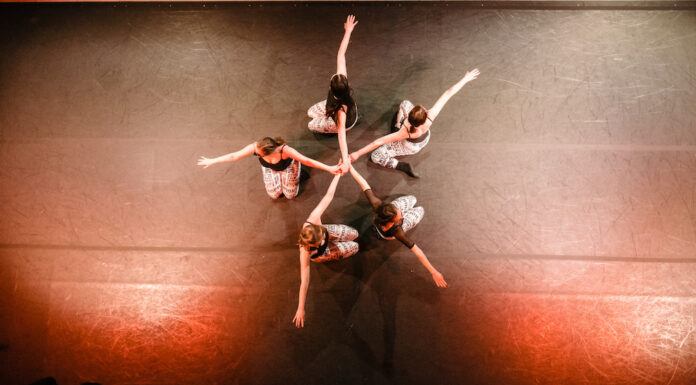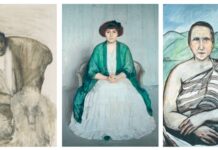With states across the country enacting Draconian book bans and increasing threats to the LGBTQ community, composer Andrew Choe and choreographer/executive director Ellice Patterson of Abilities Dance Boston responded in the way they know best: by creating “The Banned Ballet,” a full-length work that is both a call to action and a celebration of lives at the intersections of queerness and disability.
Choe, music director and composer for Abilities Dance Boston since Patterson founded the company in 2016, says he was motivated to co-create the ballet by “the extremely alarming, sweeping book bans in places like Florida and Tennessee, and by the regression of LGBTQ rights.”
“Book bans are among the first actions taken, historically, by fascist regimes. That sparked the creation of this ballet in response,” Choe said.
“The Banned Ballet” will have its premiere at the Strand Theatre November 3 and 4 at 8 p.m. and will also be live-streamed. The ballet features seven musicians performing Choe’s score and nine dancers. Abilities Dance Boston’s company is made up of adult dancers with and without disabilities. “There is a wide spectrum of visible and invisible disabilities,” says Choe whose composes his original music to match the movements of the dancers in a continuous back and forth process with Patterson. This collaboration, he says, creates unique pieces that tell stories that are both inclusive and universal to the human experience.
That will be the focus of “The Banned Ballet.”
“Our story loosely follows what is happening in this country with book bans and assaults on the queer community. We have scenes of [dancers] in opposition to these forces,” says Choe, a Georgia native who graduated from Boston’s Berklee College of Music. He drew inspiration, he says, from “the symphonic fairy tale of Prokofiev’s ‘Peter and the Wolf’ because it has narration and the instruments in that world represent different elements.”
Prior to “The Banned Ballet,” Choe and Patterson collaborated most recently on the world premiere of “Intersections v2,” the second installment of a performance highlighting BIPOC artists and disability rights, which had its world premiere in April. “The Banned Ballet” will star Leslie Taub, a dance/movement artist working primarily in improvisational modern forms, who performed in “Intersections v2.”
In “The Banned Ballet,” Taub stars as a librarian, “a queer femme disabled woman,” says Patterson. Besides choreographing the ballet and writing the audio narration, Patterson will play the Fairy Bookmother in the production.
“This ballet is important to both Andrew and me as our community, especially our youth, is undergoing record erasure in public spaces in our home states and across the country,” says Patterson, who founded Abilities Dance in order to create a thriving space for professional dancers of all abilities. “This ballet reminds audiences of all ages the importance of representation, and seeing disabled/queer and other diverse identities in leadership on stage and off stage will hopefully spark conversations and continue in the fight for our rights.”
Patterson launched the company after being frustrated by the lack of opportunities and places that would allow her to perform and develop on a professional level. Since its first production in February 2017, Abilities Dance has demonstrated its mission of inclusivity in dance performances at the Museum of Fine Arts Boston, the Wimberly Theatre at the Calderwood Pavilion, Peabody Essex Museum, Boston Contemporary Dance Festival and many other venues. “The Banned Ballet” marks the first time that the company will perform at the historic Strand Theatre.
A large part of Abilities Dance Boston’s mission is community outreach for disability justice and equity in the arts sector, says Choe.
“Often when we think of social justice work or cultural equity work, people tend to forget the intersecting marginalized disability communities such as BIPOC and LGBTQ. We want to highlight people in that intersection and celebrate and uplift them,” says Choe. There are plans, he adds, to work with a young disabled illustrator to create a book about the ballet with copies available to purchase at the performances.
“The Banned Ballet” may be rooted in troubling contemporary events, but the production will be “family friendly,” says Choe. “I hope that it will allow young people to see themselves reflected and celebrated in art and culture. These are scary times we’re living in, but you have the right to flourish and rise no matter who you are.”
More: abilitiesdanceboston.org
Not a subscriber? Sign up today for a free subscription to Boston Spirit magazine, New England’s premier LGBT magazine. We will send you a copy of Boston Spirit 6 times per year and we never sell/rent our subscriber information. Click HERE to sign up!









